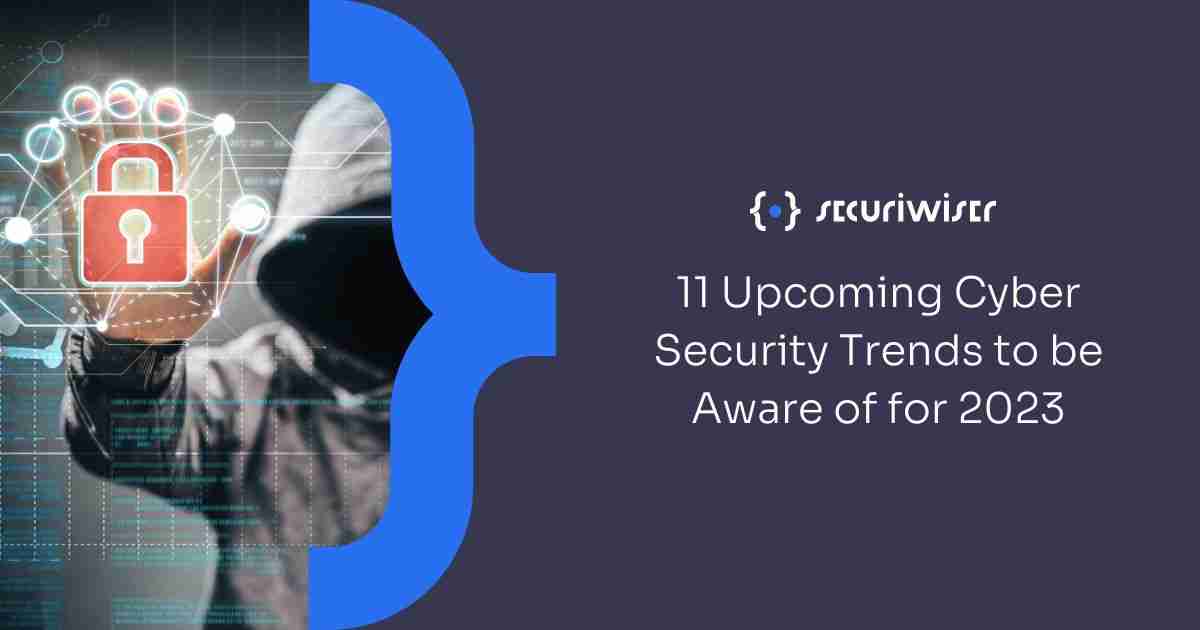11 Upcoming Cyber Security Trends to be Aware of for 2023
Blog / 11 Upcoming Cyber Security Trends to be Aware of for 2023
3 MIN READ


As a result of the Covid-19 pandemic, many companies saw no choice but to transfer operations online and rely on remote working. In return, this has caused organisations serving all sectors and individual users to become increasingly vulnerable to various cyber security attacks. As an organisation leader, you (and your employees) need to be aware of the following emerging cyber security trends to strengthen your preparation methods against such attacks.
Geo-targeted phishing
Phishing attacks are currently regarded as the first most major threat to the IT sector, with many targets still falling victim to phishing emails. On top of this, the tactics employed by cyber criminals have become more advanced, consisting of well organised phishing emails, redirection to malicious URLs and business email compromise attacks (BEC). Now, phishing attempts have become more localised, more personal and geo-targeted.
Targeting of healthcare organisations
Data breaches and leaks are a common occurrence among organisations serving the healthcare sector, resulting in large remediation costs. As a result of the pandemic, some healthcare organisations have relaxed security practices such as firewall rules to help their staff work from home easier. Therefore, security requirements are becoming increasingly strictly enforced to protect health care related data.
Need for stronger cloud security
There is a need to strengthen cloud security as many cloud providers do not provide secure encryption. In addition to this, poor configuration provides an opening for cyber criminals. Predictive security helps organisations identify security threats before any damage can be done and in the last three years, predictive security cloud has acquired 261% return of investment (ROI).
Increased attacks upon financial institutions
Organisations that serve the financial sector tend to be targeted with phishing attacks through email, social media sites and other messaging platforms. In addition to phishing attacks, data breaches are a common occurrence within the financial sector as well as malware attacks. Compared to other sectors, organisations serving the financial sector are more prone to cyber-attacks.
Increased threats to institutes of higher education
With the increase of online learning and remote working, cyber security has become an even more important priority for organisations serving the higher education sector. Universities have become increasingly targeted by cyber attacks in the form of data breaches and in turn, institutes of higher education have started to practice stricter security measures to protect the sensitive data belonging to students, staff and researchers.
IoT devices under threat
Many IoT (Internet of Things) devices accessible from todays market are becoming increasingly affected with cyber security issues. This is because with IoT devices, information can be transmitted and received over the Internet which opens the devices to a large range of attack possibilities. This can include cyber security attacks like DoS (Disruption of Service) and hacking.
Increased targeting of mobile devices
Many e-commerce sites and other sites can be accessed from mobile devices as over time, mobile user engagement has become improved. Due to this, mobile users have become increasingly targeted by cyber criminals and the frequency of this is increasing. Mobile devices have become an easy target as users can now accomplish almost anything with their smart phones including shopping, personal communication, logging into student portals, checking work activities, banking and booking for various services.
AI (Artificial Intelligence)
IoT technologies are becoming more affordable to manufacturing companies. IoT sensors are increasingly becoming important for collecting data regarding machine performance as well as processing and interpreting the gathered data for improved accuracy and decreased chance of human error.
While AI is a relatively newly adopted strategy, it is estimated that cyber security strategies for manufacturers will become more reliant on machine learning, a form of AI that enables software applications to predict outcomes without the need to specifically program them with those capabilities.
Increased reliance on identity proofing technologies
The need for digital certificates is arising for authentication purposes however, organisations are finding them selves to be limited by their lack of modern IT systems or budget constraints. Due to the increased costs attached, companies are reluctant to invest in newer cyber security systems.
As a result of this, for 2023, it is expected for there to be a rise in increased reliance on SaaS (Software as a Service) tools and identity proofing tools.
Automation
Automation and IoT are becoming increasingly held with greater importance for ensuring that businesses and manufactures remain cyber secure. In order for both practices to be effectively enforced, a strong cyber security plan needs to be enforced. This is even more important for IoT devices as these devices typically involve ‘setting and forgetting’.
Stricter GDPR compliance
The GDPR (General Data Protection Regulation) is one of the most significant developments regarding protection of data privacy across the EU nations. Any company that wishes to market products or services to EU citizens must comply with the GDPR no matter the location of the company. As a result of this, the GDPR is highly influential and is having a large impact on global data protection requirements.
The GDPR enforces the same set of data privacy regulations on all EU nations and due to the creation of the GDPR, EU nations are not required to form their own set of regulations. This, in turn provides more consistent data protection to consumers and EU residents. International organisations have started to apply changes to ensure compliance with the relatively recent law.
Previous Article
How Insider Threats Put Businesses at RiskHow secure is
your business?
Blog categories
How secure is
your business?